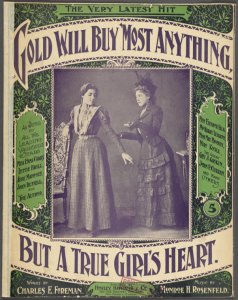On election eve, I will pause in my "Broke is Beautiful" musings and revisit a topic from one of my previous books
Blame it on the Rain (Harper Collins).
Does weather impact voting?
It is one of the most famous photographs from American political history. The new president elect Harry Truman grins triumphantly as he holds up a copy of the Chicago Tribune with the blazing headline: “Dewey Defeats Truman.” Collectors of historic newspapers pay as much as $900 for this gem of failed forecasting.
Thomas Dewey, of course, did not defeat Harry Truman for the presidency. The Chicago Tribune made the mistake of believing polling data. If the polls were correct, there was little chance Truman could win. The day before the election, Gallup predicted Dewey would get 49.5 percent of the vote and Truman 44.5 percent. The Crossley poll came up with almost the same result. The Elmo Roper poll showed an even more impressive 52.2 percent for Dewey and 37.1 percent for Truman.
How did the pollsters get it so wrong? There were, of course, many factors which historians have discussed and debated for decades. One of these was the weather in Illinois.
Weather and politics have a long history going back to the days when political office was won on the tip of a sword rather than at the ballot box. The word “campaign” itself derives from a military term that can be traced back to the days when armies stood down during the freezing cold and ventured out into “the field” only when weather permitted. The word for an open field in Latin is “campania” and this passed into 14th century English as champaign. (The French wine, champagne was named for a region of open fields that derives its name from the same Latin root.) Champaign evolved into campaign. The word for the field was metaphorically used for the military taking of the field. Eventually the military sense was expanded to include any attempt to mobilize a large number of people.
When people began to select their leaders through elections, the effect of the weather became less direct. Yet inclement weather continued to play its role by keeping the less motivated people from the polls and by hindering campaign efforts. When the race is very close, as it was in the case of Dewey vs. Truman in 1948, a few people deciding not to venture into the elements, is enough to swing the election.
In 1948, splits within the Democratic party made a victory by Truman at the polls seem like a long shot. Two spin-off parties were created, one on the left, and one on the right. On the left was the Progressive Party, led by Henry Wallace. Wallace and his followers were unhappy with Turman’s foreign policy. They held him responsible for the Cold War with Russia. Wallace favored negotiations to lessen those tensions. The Progressive slogan was “one, two, three, four, we don’t want another war.”
On the right was South Carolina governor J. Strom Thurmond and the States’ Rights Democratic Party. This party was created after Truman proposed a series of measures that would guarantee equal rights to African-Americans. These proposals were controversial among the so-called “Dixiecrats,” the Democrats of the South. When Truman announced his plan, thirty-five delegates walked out of the Democratic convention to form their own party. The states rights delegation did not expect to win, but they hoped to get enough votes to throw the election to the House of Representatives where they could swing the ballot to a candidate who opposed civil rights legislation.
All this Democratic infighting was a boon to Republican Thomas Dewey. The New York Post wrote: “The party might as well immediately concede the election to Dewey and save the wear and tear of campaigning.” Dewey was so confident in his assured win that he mounted a very subdued campaign. Harry Truman, on the other hand, embarked on a 31,000-mile train trip across the nation and delivered hundreds of speeches.
Democrats have often said that the rain favors them because it presents more of a challenge to rural voters than to the urban voters who are most likely to pick a Democratic candidate. On election day 1948 this was borne out. A storm system in the lower Mississippi Valley spread rain across Illinois with especially heavy downpours in the South. Not only was the rain more likely to muck up dirt roads than urban transport, the rain itself was concentrated over the rural section of the state, and it mostly spared Chicago and the industrial north. Meanwhile, a Pacific storm brought heavy rain to California. It fell in the predominantly Republican northern part of the state, while the Democratic southern part had sunshine.
A difference of 29,294 votes, or .28 of one percent of the electorate, in Illinois, California and Ohio could have changed the outcome. The rain in Illinois and California may well have tipped the scales. In the end Harry Truman captured 303 electoral votes, Thomas Dewey, 189 and Strom Thurmond, 39.

















